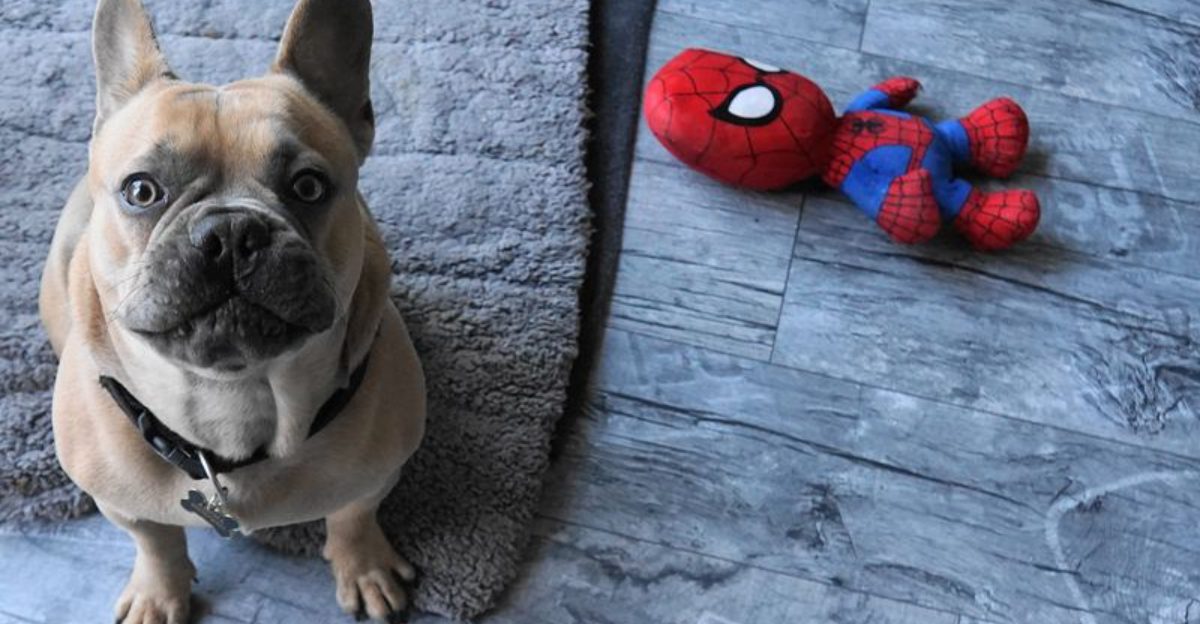Purchasing a dog is a significant decision, and choosing a breeder requires careful thought. Understanding the implications of buying from a breeder versus adopting from a shelter can guide you to make a responsible choice. This post outlines 20 essential factors to consider when selecting a dog from a breeder.
Many Dogs in Shelters Are Already Purebred
Ever wondered about the variety of dogs in shelters? Many people don’t realize that a significant number of shelter dogs are, in fact, purebred. Shelters house various purebred dogs that have been surrendered for different reasons.
This means you can find a specific breed while also providing a home to a dog in need. The presence of purebreds in shelters is a testament to the diversity and depth of the canine population waiting for new homes.
Adopting from a shelter allows you to find your desired breed without supporting overbreeding.
Breeders Can Contribute to Overpopulation
The issue of overpopulation often traces back to breeders. Dogs bred for profit can add to the overwhelming number of animals in shelters.
Without responsible breeding practices, the cycle of overpopulation continues, leading to increased euthanasia rates. By recognizing this connection, potential dog owners can consider the broader impact of their choice.
Choosing to adopt rather than buy can help break this cycle and support more sustainable animal welfare practices.
High Cost of Purchasing Versus Adopting
Buying a dog from a breeder can be an expensive endeavor. Costs include the purchase price, initial vaccinations, and sometimes microchipping.
In comparison, adopting a dog from a shelter is typically less costly, with many shelters covering initial medical expenses. Consider the financial implications and how adopting might better suit your budget.
Adopting a dog allows you to redirect your funds toward lifelong care, training, and enrichment.
Ethical Concerns About Mass Breeding
Mass breeding operations often prioritize profit over animal welfare, leading to ethical concerns. Dogs in these situations may suffer from poor living conditions, lack of socialization, and inadequate veterinary care.
Supporting such practices perpetuates a cycle of neglect and cruelty. As a potential dog owner, assessing the ethical standards of any breeder is crucial.
Prioritize breeders who demonstrate a genuine commitment to the health and happiness of their animals.
Puppy Mills Disguised as Breeders
Distinguishing between reputable breeders and puppy mills can be challenging. Many puppy mills disguise themselves with polished websites and charming photos.
However, the reality often involves overcrowded and unsanitary conditions. These environments can lead to significant health and behavioral issues in puppies.
Research and visit breeders in person to ensure they provide a healthy, caring environment for their dogs.
Transportation Stress for Puppies
Transporting puppies over long distances can cause significant stress. Young dogs are sensitive to changes, and travel can affect their health and temperament.
Consider the impact of transportation if buying from a distant breeder. This stress can manifest in various ways, including anxiety and reluctance to eat.
Opt for local breeders where possible, or consider the benefits of adopting a nearby shelter dog.
Risk of Inherited Genetic Diseases
Inherited genetic diseases pose a significant risk when purchasing from breeders. Some breeders may not prioritize genetic testing, leading to unsuspecting buyers facing medical issues.
Conditions like hip dysplasia or heart defects can affect a dog’s quality of life and lead to high veterinary costs. Research the breeder’s commitment to genetic health screenings.
Understanding these risks can help you make a more informed decision about your future pet’s wellbeing.
Lack of Socialization in Young Puppies
Socialization is critical in a puppy’s early development. Puppies from breeders may not receive adequate social interaction, leading to behavioral challenges.
Without exposure to various environments, people, and other animals, a puppy may struggle with anxiety and aggression. This lack of socialization can impact long-term behavior and adaptability.
Ensuring a breeder prioritizes this aspect can make a significant difference in your dog’s future temperament.
Unethical Breeding for Appearance Over Health
Breeding for appearance rather than health can lead to severe issues. Dogs bred for specific aesthetic traits may suffer from related health problems, such as breathing difficulties or joint issues.
These practices prioritize looks over a dog’s quality of life. As a buyer, it’s essential to recognize the long-term implications of such breeding methods.
Choosing breeders who value health over appearance contributes to better canine welfare.
Potential Lifetime Breeding Contracts
Some breeders impose lifetime breeding contracts, binding owners to specific conditions. These agreements may require returning the dog for breeding or restricting certain activities.
Such contracts can limit your freedom as a pet owner and affect your dog’s quality of life. Always read and understand any contract terms before committing.
Consider the potential impacts on your lifestyle and your dog’s wellbeing when evaluating breeders.
High Veterinary Costs from Poor Breeding
Poor breeding practices can lead to significant veterinary expenses. Dogs from irresponsible breeders may suffer from genetic conditions needing lifelong care.
These unexpected costs can be financially burdensome, impacting your ability to provide for your pet. Researching breeder practices and choosing those with high health standards can mitigate these risks.
Investing in a healthy pet upfront can save time, money, and emotional stress later.
Adoption Gives a Second Chance to a Dog in Need
Adopting a dog offers a fresh start to an animal in need. Many dogs in shelters have experienced hardship and long for a loving home.
By adopting, you provide not just a safe environment but also a renewed sense of belonging and love. This act of kindness extends beyond the dog, promoting a culture of compassion.
Every adopted dog represents a life transformed, offering joy and companionship in return.
Shelter Dogs Are Often Already Vaccinated and Microchipped
Shelter dogs often come with the added benefit of being vaccinated and microchipped. This preparation means fewer initial expenses and a smoother transition to home life.
Vaccinations protect against diseases, while microchipping ensures identification if the dog becomes lost. These measures highlight shelters’ commitment to responsible pet ownership.
Choosing a shelter dog can ease the initial burden and provide peace of mind for new pet owners.
Adoption Fees Are Significantly Lower
Adoption fees from shelters are generally much lower than purchasing a dog from a breeder. These fees often cover initial medical care, making adoption a cost-effective choice.
The financial savings allow families to invest more in their pet’s ongoing care and enrichment. Understanding this financial benefit can make adoption more appealing.
Supporting shelters through adoption helps fund their efforts to care for more animals in need.
Breeder Dogs May Lack Early Emotional Resilience
Dogs from breeders may not always develop optimal emotional resilience. Without diverse early experiences, they can struggle with adaptability and confidence.
This lack of resilience can manifest in anxiety, fearfulness, or aggression in unfamiliar situations. Breeders focused solely on breeding rather than socialization may contribute to this issue.
Selecting a breeder who prioritizes emotional development is crucial for a well-adjusted pet.
Many “Rare” Breeds Have Hidden Health Issues
Rare breeds often come with hidden health challenges. Selective breeding for rarity can result in genetic issues, leading to long-term health complications.
These conditions may require ongoing veterinary care, impacting the dog’s quality of life and owner expenses. Awareness of these potential problems is crucial when considering rare breeds.
Choosing wisely can prevent heartache and financial strain, ensuring a healthy, happy pet.
Shelter Staff Help Match You with Compatible Dogs
Shelter staff play a vital role in matching dogs with suitable families. Their experience and knowledge of each dog’s personality and needs are invaluable.
This personalized approach ensures a harmonious match, enhancing the chances of a successful adoption. Staff can provide insights into behavior, energy levels, and compatibility with children or other pets.
Relying on their expertise can guide you to the perfect canine companion.
Adoption Promotes Responsible Pet Ownership
Adopting a dog signifies a commitment to responsible pet ownership. It reflects an awareness of the broader implications of pet overpopulation and welfare.
By choosing adoption, owners support efforts to reduce shelter populations and promote ethical treatment of animals. This choice fosters a community of care and compassion, setting an example for others.
Adoption is not just a personal decision but a meaningful contribution to animal welfare.
Mixed Breeds Can Be Healthier and Longer-Lived
Mixed-breed dogs often enjoy better health and longevity compared to purebreds. The genetic diversity in mixed breeds can reduce the likelihood of inherited diseases.
This robustness translates to fewer medical issues and a potentially longer lifespan. For families concerned about health and veterinary costs, mixed breeds offer an appealing option.
Embracing a mixed-breed dog can lead to a fulfilling, long-lasting companionship.
Every Adoption Helps Reduce the Stray Population
Adopting a dog contributes to reducing the stray population. Each adoption creates space in shelters, allowing them to rescue more animals from the streets.
This cycle of adoption and rescue supports community efforts to manage strays and improve animal welfare. It’s a tangible way to make a difference in the lives of countless dogs.
Every adopted dog represents a step toward a world with fewer strays and more happy, healthy pets.



















